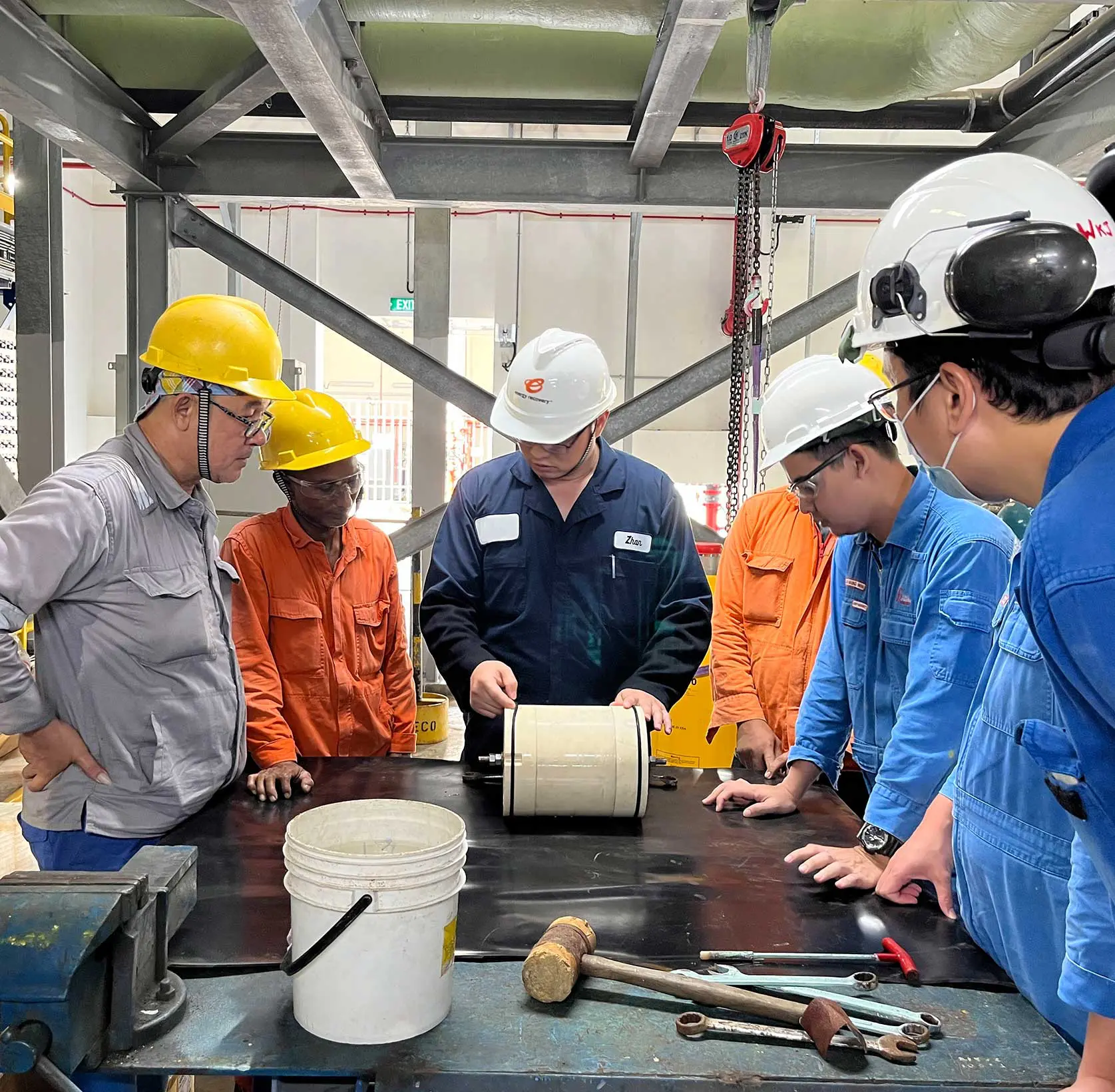Energy Recovery Inc. (NASDAQ: ERII), the leader in harnessing reusable energy from industrial fluid flows and pressure cycles, today announced that EPC Abengoa will use the Company’s premium PX® technology in two desalination plants in Ghana and Oman. Both of these arid countries are home to growing populations with limited access to fresh water resources. The PX Pressure Exchanger® will save more than 52 million kilowatt hours (kWh) per year in each country. For reference, it takes about 1 kWh of energy to power a hot shower for three minutes.
Sustainable solutions developer Abengoa Water will construct a desalination plant in Nungua, Ghana – the first in the country’s history – for the Ghana Water Limited Company and an expansion in Barka, Oman for the owners of the Barka I Independent Water and Power Project (IWPP). According to George Kotsovos, Standard Bank’s head of power and infrastructure finance, the Nungua desalination plant is an important project for Ghana, providing 400,000 people with fresh drinking water.
“For years, we have counted on Energy Recovery to provide us with the most efficient energy recovery solutions. For small- to medium-sized projects such as Ghana to larger, mega projects like Barka I, Energy Recovery is simply the best energy recovery device in the market providing the highest cost savings, most reliability and lowest carbon footprint,” said Carlos Cosín, CEO of Abengoa Water. “We’ve already seen extensive cost savings across our projects with Energy Recovery and expect the same return on these two new plants.”
As water resources becoming increasingly scarce, governments are under increased pressure to create more efficient infrastructure.
With efficiencies on our products of up to 97.2 percent and 12 Billion kWh in energy savings worth $1.2 Billion in cost savings per year for global clients, Abengoa Water chose the PX Pressure Exchanger® device, the best-in-class and most reliable energy recovery device on the market.
In Ghana, this will be the first desalination plant in the country. Abengoa will build and operate the plant for 25 years in the town of Nungua, in southeastern Ghana, about ten miles from the capital city of Accra. The plant will produce 60,000 cubic meters of water daily.
“Abengoa has been a terrific desalination partner over the years,” said Tom Rooney, CEO at Energy Recovery. “We share a common business ethos for precision engineered systems that increase profit and provide careful environmental stewardship.”
According to the Ghanaian government, this newly flowing water will go to the rapidly expanding capital city of Accra and surrounding areas where residents have historically traveled long distances in search of water.
The Barka Oman expansion is the first mega project in the country employing PX Pressure Exchanger® technology. The project is a 45,460 cubic meters of water per day expansion to provide 225,000 local inhabitants with fresh drinking water. The plant will now have a total capacity of 136,380 cubic meters per day, a move that will help solve the country’s water shortage.
Abengoa Water and Energy Recovery have completed nine large desalination projects together over the last decade. Together these two projects are providing 625,000 people with fresh drinking water in critical regions looking to desalination as a viable solution to their limited water supply.
Unique to the Barka project and a growing trend in desalination financing is the Independent Water & Power Project (IWPP). The IWPP model is gaining traction in the Middle East and North Africa as greater water shortages are affecting the region. The combination of power and water production gives the best economic performance, which is why IWPP is used in Oman and widely in the Middle East.
For many countries, pay-as-you-go is a more affordable option, and external financing does offer a guaranteed solution to a country that must produce its potable water resources.
Already experiencing a successful implementation, the plant is now planning for a Barka II expansion. Devices for the Barka project shipped in the fourth quarter of 2012, whereas we expect delivery of devices for the Ghana project to occur in the second quarter of 2013.
This press release contains statements that qualify as “forward-looking statements” under the Private Securities Litigation Reform Act of 1995, including, but not limited to anticipated expansion and expected delivery of projects which are subject to potential known and unknown risks, uncertainties and other factors which can result in outcomes different than those expressed or implied by each forward-looking statement. Some of these risks, uncertainties and other factors are discussed in our 2012 Form 10-K.
About Energy Recovery
Energy Recovery Inc. (NASDAQ: ERII) technology harvests power from high-pressure fluid flows and pressure cycles. Through collaboration with industry, Energy Recovery helps make industrial processes within water, oil & gas, and other industries more profitable and environmentally sustainable. With over 14,000 energy recovery devices installed worldwide, Energy Recovery sets the standard for engineering excellence, cost savings, and technical services to clients across the globe. Year after year, the company’s clean technologies save clients over $1.2 Billion (USD) in energy costs. Headquartered in the San Francisco Bay Area, Energy Recovery has offices in Madrid, Shanghai, and Dubai. www.energyrecovery.com
